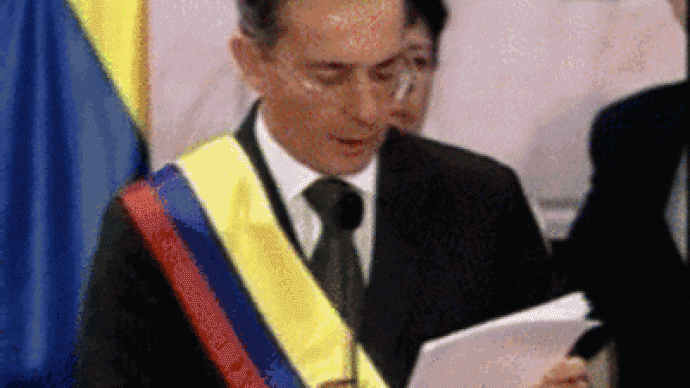Security tightened in Colombia

The Colombian President, Alvaro Uribe, promised to strike a peace deal with rebels, as he was sworn into office for a second term. Thousands of soldiers and police officers patrolled the streets of the capital, Bogota.
Uribe's first inauguration, four years ago, became the scene of an insurgent attack. Rebels from the Revolutionary Armed Forces of Colombia fired mortars at the presidential palace, killing at least twenty people.
In the lead up to his second inauguration, the rebels detonated two car bombs and killed dozens of security personnel. Uribe won the election in May with an overwhelming majority.
The key to his popularity is a hard line stance against leftist guerrillas. Uribe promised to pursue his security policy and finally end the forty-year old conflict. Thousands of civilians are killed or displaced every year in violence fuelled by the country's cocaine trade.
Uribe is credited with reducing the number of murders and abductions, which is the highest the world over. But scores of victims are still being held in jungle camps by the insurgent militia. Another challenge for the President is to balance national security targets with the tackling of
50 percent of the population lives below the poverty line and 13 million have no access to any form of pension.












